Geometry
Geometry is a branch of mathematics that deals with the study of shapes, sizes, and the properties of space. It is an important area of math that is used in various fields including engineering, architecture, and art.
Basic Concepts in Geometry
Geometry involves the study of points, lines, angles, surfaces, and solids. Here are some basic concepts in geometry:
- Points: A point is a location in space represented by a dot. It has no size or dimension.
- Lines: A line is a straight path that extends infinitely in both directions. It is made up of an infinite number of points.
- Angles: An angle is formed by two rays that share a common endpoint. Angles are measured in degrees.
- Shapes: Geometry deals with various shapes such as triangles, rectangles, circles, and polygons.
- Area and Perimeter: Geometry also involves the calculation of the area (the measure of the surface enclosed by a shape) and perimeter (the distance around a shape) of different figures.
Types of Geometry
There are different types of geometry, including:
- Euclidean Geometry: This is the study of flat or two-dimensional shapes and their properties.
- Coordinate Geometry: Involves using algebraic techniques to study geometric concepts.
- Trigonometry: A branch of geometry that focuses on the study of angles and the relationships between the sides and angles of triangles.
- Solid Geometry: Deals with the study of three-dimensional shapes such as cubes, spheres, and prisms.
Importance of Geometry
Geometry is important because it helps us understand the world around us. It is used in fields such as architecture, engineering, design, and navigation. Understanding geometric concepts also helps in problem-solving and critical thinking.
.◂Math Worksheets and Study Guides Second Grade. Number Patterns
Study Guide Number Patterns
Number Patterns  Worksheet/Answer key
Worksheet/Answer key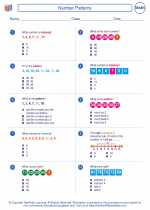 Number Patterns
Number Patterns  Worksheet/Answer key
Worksheet/Answer key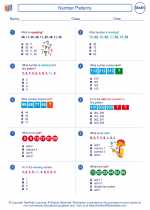 Number Patterns
Number Patterns  Worksheet/Answer key
Worksheet/Answer key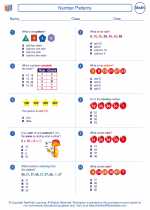 Number Patterns
Number Patterns  Worksheet/Answer key
Worksheet/Answer key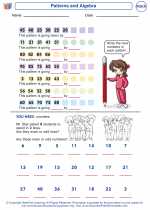 Patterns and Algebra
Patterns and Algebra  Worksheet/Answer key
Worksheet/Answer key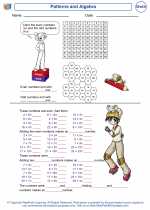 Patterns and Algebra
Patterns and Algebra  Worksheet/Answer key
Worksheet/Answer key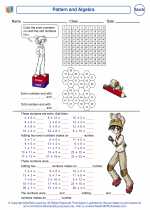 Pattern and Algebra
Pattern and Algebra  Worksheet/Answer key
Worksheet/Answer key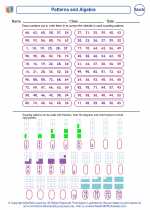 Patterns and Algebra
Patterns and Algebra  Vocabulary/Answer key
Vocabulary/Answer key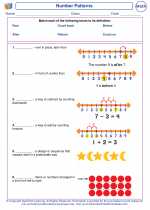 Number Patterns
Number Patterns 

 Worksheet/Answer key
Worksheet/Answer key
 Worksheet/Answer key
Worksheet/Answer key
 Worksheet/Answer key
Worksheet/Answer key
 Worksheet/Answer key
Worksheet/Answer key
 Worksheet/Answer key
Worksheet/Answer key
 Worksheet/Answer key
Worksheet/Answer key
 Worksheet/Answer key
Worksheet/Answer key
 Vocabulary/Answer key
Vocabulary/Answer key

The resources above cover the following skills:
Algebra (NCTM)
Understand patterns, relations, and functions.
Recognize, describe, and extend patterns such as sequences of sounds and shapes or simple numeric patterns and translate from one representation to another.
Analyze how both repeating and growing patterns are generated.